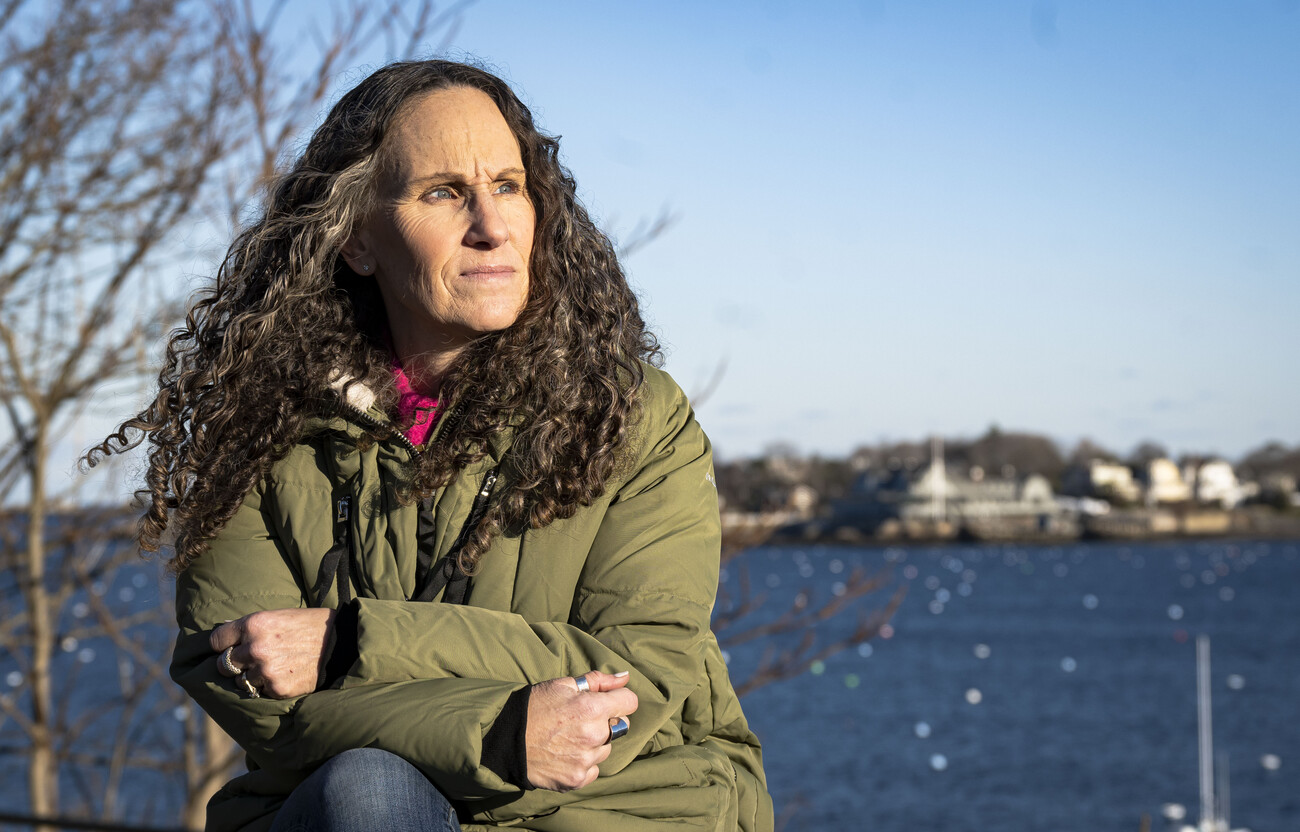When she was just 10 years old, Marblehead’s Lisa Sugarman experienced the loss of her father. She was told that he had died after suffering a heart attack.
At such a young age, especially during a time when conversations involving mental health were not yet normalized, she didn’t question his cause of death. She knew that though he lived an active lifestyle, he was a smoker. Naturally, she presumed that played a role.
35 years later, however, she learned that he had taken his own life. Ever since then, Sugarman has been dedicated to helping turn her tragedy into hope.
“I wanted to kind of turn that pain into some sort of purpose,” Sugarman said.
That purpose originally came from her writing. As a content creator, Sugarman had written pieces for magazines, books, and even columns for papers, including the Marblehead Reporter, all of which were primarily focused on parenting.
After learning how her father died, she transitioned into the mental-health space, and wanted to do something beyond putting words on paper. When an opportunity with the Trevor Project appeared, she took it.
“Trevor Project really came to me at the right time in my life,” she said. “It was the perfect intersection of everything that I was passionate about.”
The Trevor Project, established in 1998, is a nonprofit organization focusing on suicide prevention, specifically among LGBTQ+ youth, with the mission of ending “suicide among lesbian, gay, bisexual, transgender, queer, and questioning young people.”
Sugarman began her work with the organization a year and a half ago as a crisis counselor, working on the project’s crisis hotline for young people in need. On a day-to-day basis, she answers calls ranging from those who are in imminent danger to people calling in each day because they do not have a support system in their lives.
No matter what the situation is, Sugarman said that she is “grateful” that she gets to take every single call, and even when she isn’t working, she wishes she could be taking calls to help someone.
“It gives someone a support system that they didn’t have before they called,” she said. “I think about my father every time I pick up the phone.”
Though Sugarman got her start at the Trevor Project after the height of the pandemic, she has experienced firsthand the mental-health effects that it has had on people worldwide. National and international crises over the last several years have also played a role in the dramatic increase of the mental-health emergency.
“It’s causing an insane amount of stress on everyone,” she said, adding that it’s “tough to be a human right now.”
In an effort to do her part, she has now started to use social-media platforms to create mental-health resources based on the life experience of herself and others. On YouTube, she has created a suicide-survivor series, as well as videos containing messages, thoughts, anecdotes, and tips on dealing with mental health.
Her more recent videos focus on the psychological effect of the Israel-Hamas war, a conflict that is personal to her and her family as a Jewish person who had visited Israel just two months before Hamas’ attack in October.
The video focuses on being kind to yourself and to others, as constant media coverage of global issues can take a toll, and to approach the situation from a humanitarian perspective, no matter your beliefs.
“We really need to be gentle to ourselves, we need to give ourselves permission to put down the phone and walk away from the TV and put ourselves in a neutral place,” she said. “We’re all humans, and whatever side of the conflict you’re on, there is one global side, and that’s a human side.”
When picking up the phone, Sugarman also thinks about other loved ones that she has lost to suicide in addition to her father. She said that when starting as a volunteer with the project, her family was concerned about the heavy emotional toll the work could have on her.
But every time the phone rings and she hears someone at the other end of that line, her life purpose, even through tragedy, heartbreak, and grief, is reassured.
“I somehow just feel a sense of calm when I’m on that crisis line because I know I’m exactly where I’m supposed to be and I’m doing the work I’m supposed to be doing,” Sugarman said. “I think if I can help one person, then that’s my endgame.”

